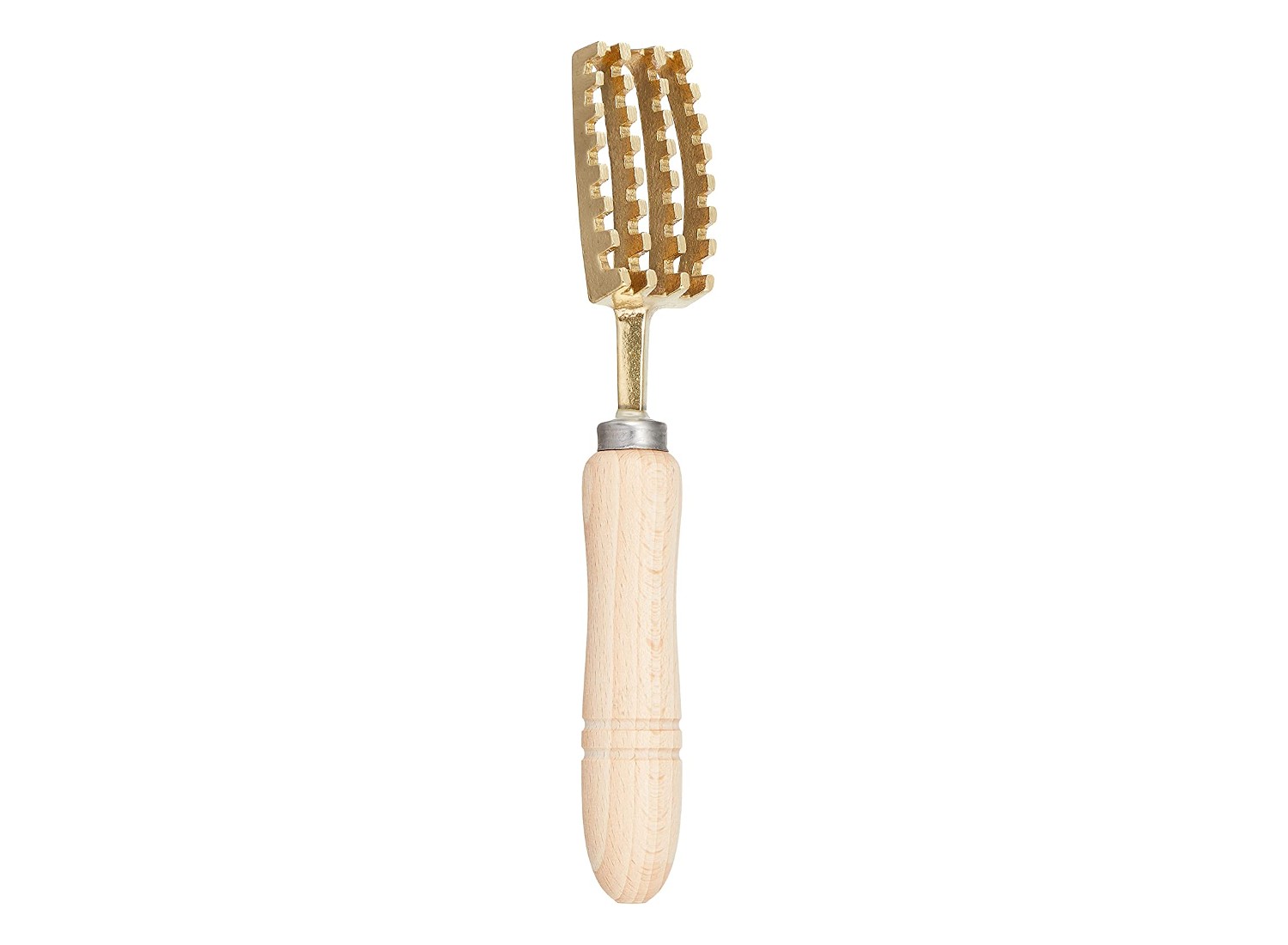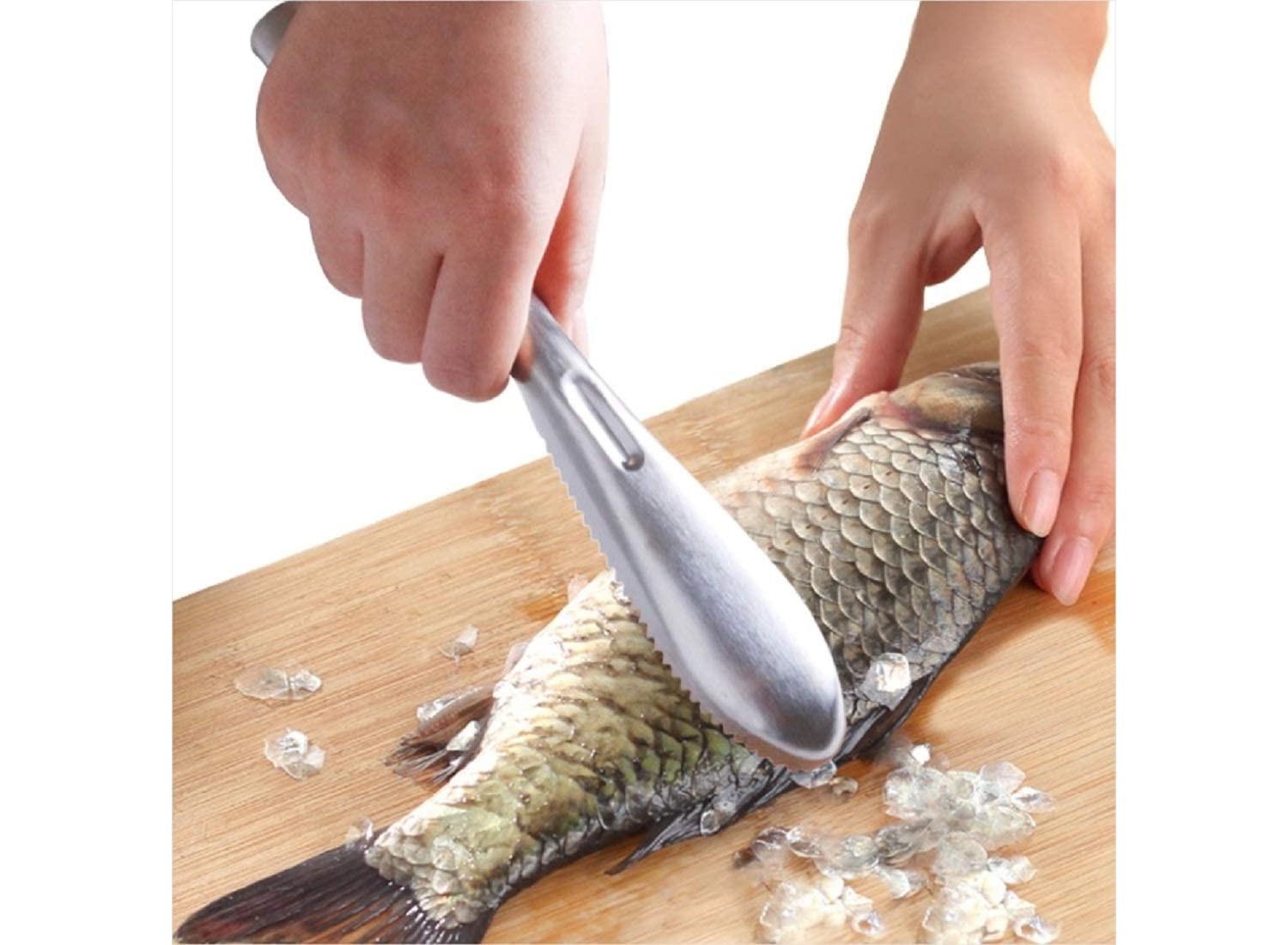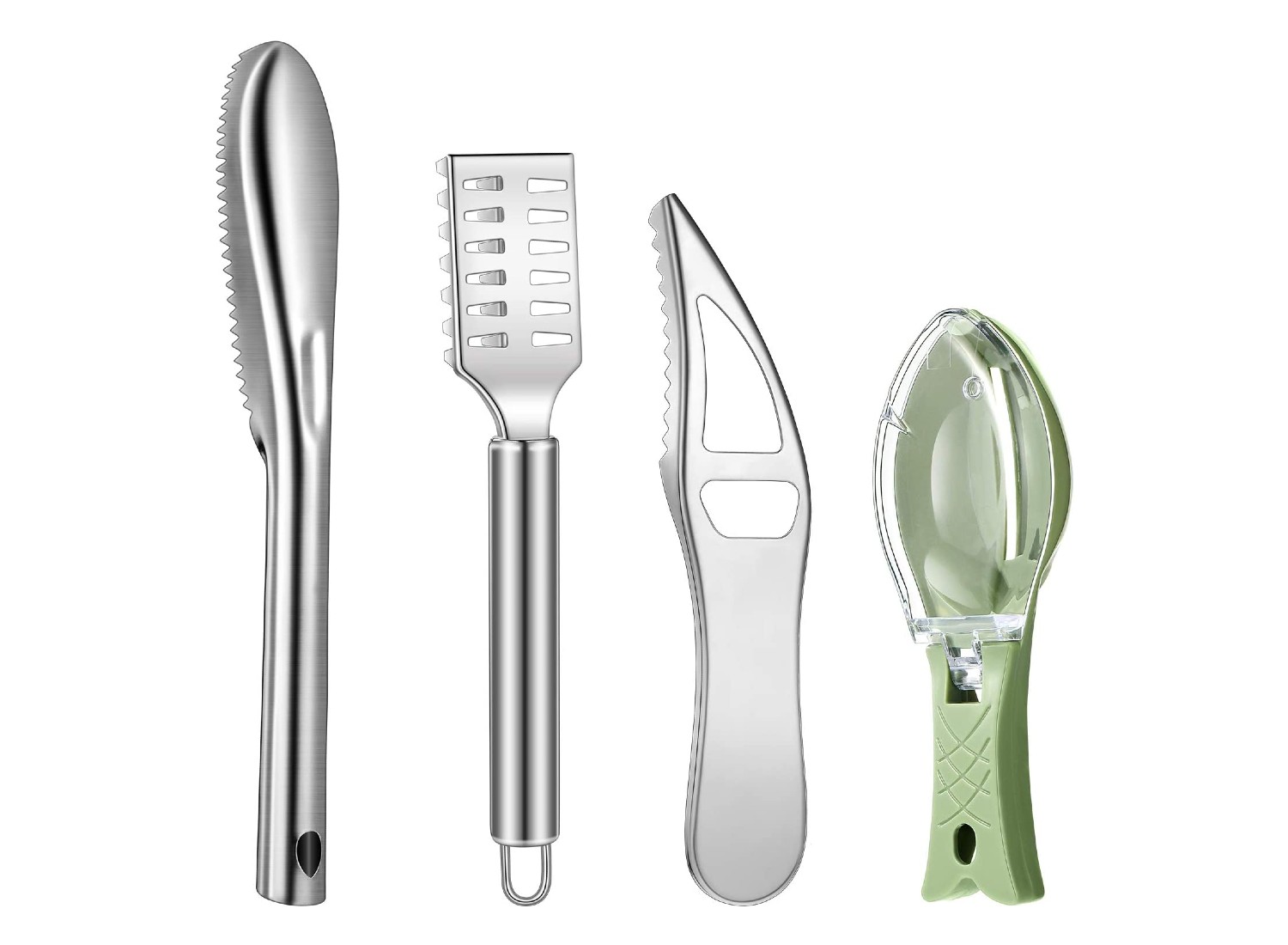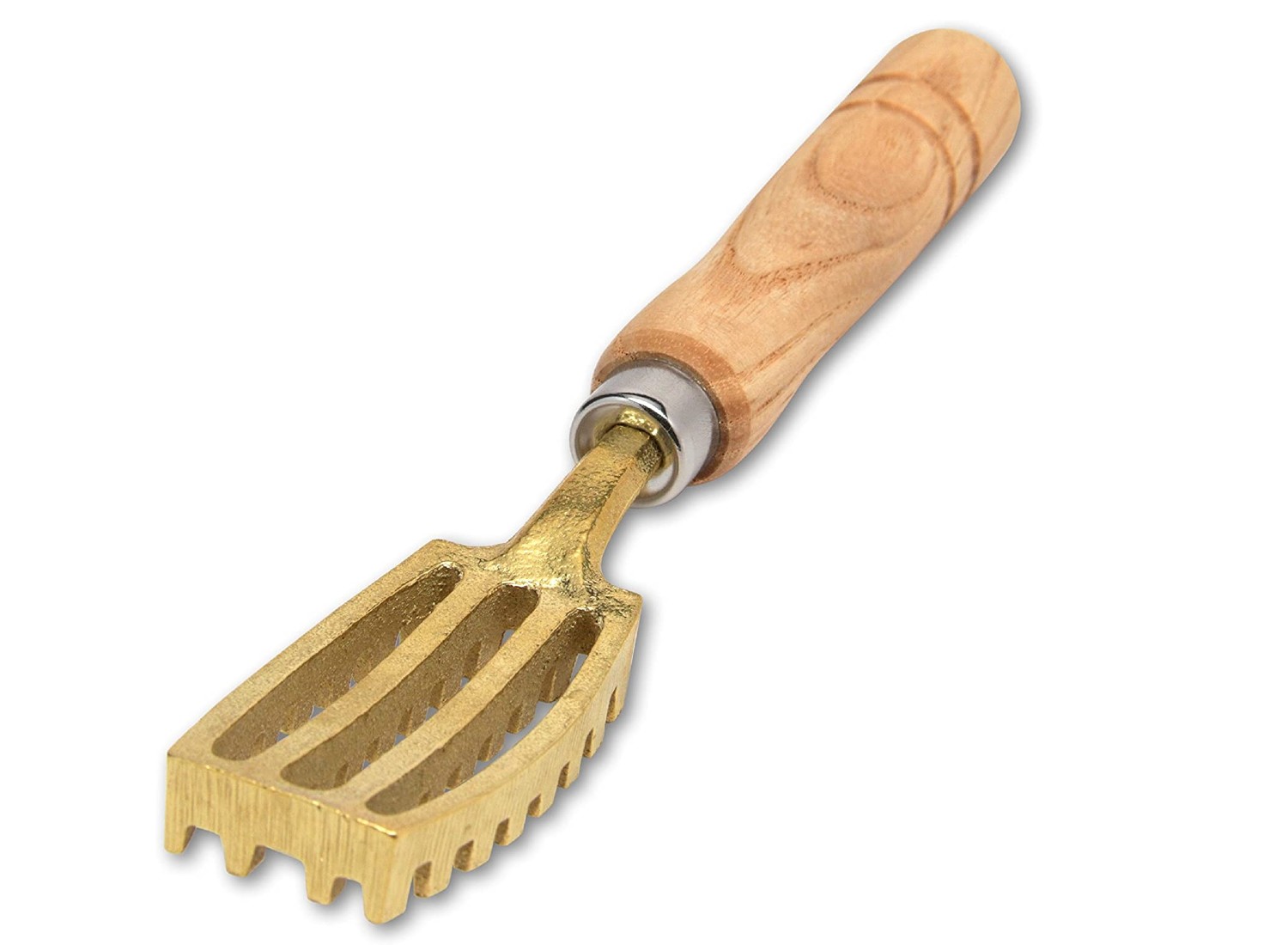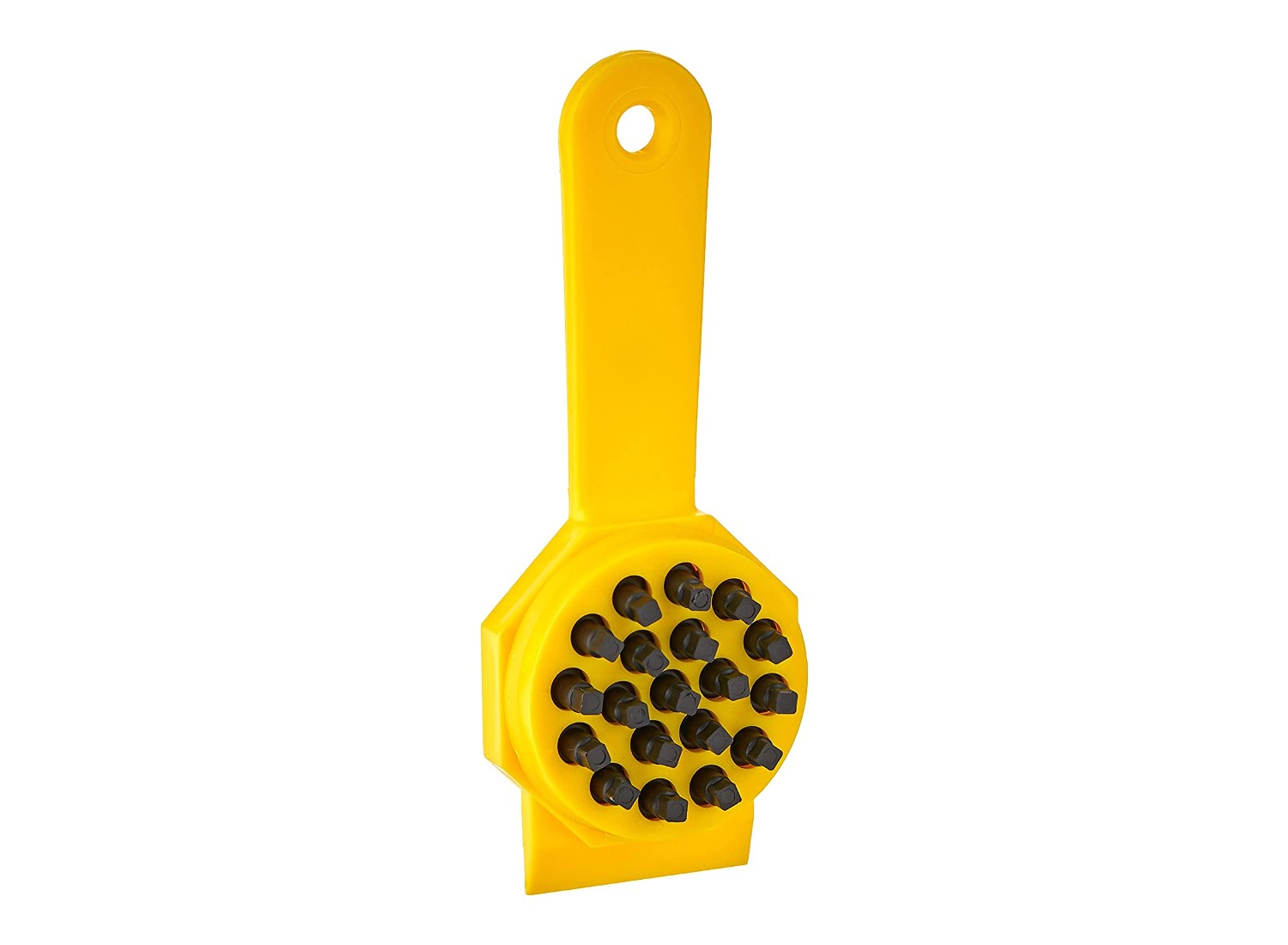Make the Most of Fishing With the Best Fish Scalers
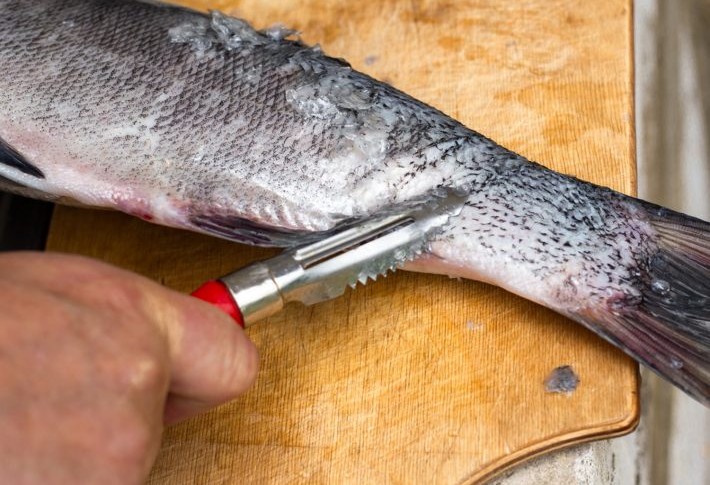
Fish are rich in nutrients, easy to prepare, and taste great. But if you’ve ever had to cook fish at home, then it should go without saying how tedious it is to get rid of those stubborn scales. Fish scalers make your life a whole lot easier, and they can help you scrape away scales in less time and with half of the mess.
With the sheer variety of fish scales out there, it can be hard to identify which one is right for you. To help you out, we’ve made a list of some of the leading fish scalers of 2024!
Our Top Picks
- Top Pick: Yamasho Fish Scaler Shop Now ➔
- Stainless Steel: COPORA Fish Scaler Shop Now ➔
- Best Set: Honoson Fish Scaler Shop Now ➔
- Best for Big Fish: Kwizing Fish Scaler Shop Now ➔
- Best for Novices: Tackle Factory Fish Scaler Shop Now ➔
Here is the Top of the Line Fish Scaler of 2024
Top Pick
If you’re looking for a small, sleek, and minimalistic product then the Yamasho Brass Fish Scaler may just be your next go-to. This fish scaler takes heavy inspiration from its Japanese counterparts and comes in a considerable size. It has a comfortable, ergonomically designed wooden handle—making it a dream to work with for a lot of fish.
The fish scaler is made with the finest quality, corrosion-resistant brass. Designed with four rows of sharp teeth, the design of the scales works to deter splattering all while cleaning the fish. The brass material is food safe and hygienic, and the featured hollow design makes it super easy to clean.
Just use water and soap, and you’re good to go.
Pros
- Brass is perfect for large fish
- Sharp scales make scraping easy
- The wood handle promotes a comfortable grip
Cons
- Some people might find it heavy
Stainless Steel
Scraping away at scales has never been easier thanks to the COPORA Fish Scaler. This scaler prides itself on its high-quality, sturdy design. And because it’s made from stainless steel, you can rest assured this item won’t leave any unwanted odors on your fish. Adding to its design, the product’s non-slip, ergonomic wood handle makes the scaling process super safe.
Lightweight and anti-rust, it is perfect for scaling small and medium-sized fish. It’s also made with specially designed grooves that help catch any loose scales that might fly off, which helps avoid a mess in the kitchen afterward.
Pros
- Anti-rust, lightweight and durable
- The grooves catch loose scales
- Scale multiple fish easily
Cons
- Works with small and medium-sized fish
- The handle can get wet
Best Set
This fishing scaling set offered by Honoson is championed for its versatility. Featuring four sharp fish scalers and serrated-edged teeth that specialize in scraping away tough scales, the construction is durable and of fine quality. Also sourced from stainless steel and ABS plastic, it’s lightweight, rust-proof, and strong enough to last you a lifetime.
These scalers are designed to kill fish, and the ergonomic, non-slip handles allow you to safely do your job without accidentally hurting yourself. One of the scalers even includes a bottle opener which further establishes this product’s versatility and multipurpose nature.
Pros
- Scale multiple fish easily
- The quality is solid and durable
- Serrated teeth promote a smoother experience
Cons
- The handle is a bit narrow
- Not great for big fish
Best for Big Fish
If you work primarily with larger fish, then the Kwizing Fish Scaler may just be your next best purchase. This exceptional example of Japanese craftsmanship is made with saw-toothed blades that let you scrape away at those tough scales effortlessly. And with a larger surface area of 8.13 x 1.38 inches and 32 individually serrated teeth, you can reach those tough areas easily.
The comfortable and ergonomic design of its wooden handle makes it ideal to work with big fish for extended periods. Its three special grooves also help you catch rogue or loose scales that might cause a huge mess.
Pros
- Descales large fish in an instant
- Features a comfortable grip
- Catches loose scales
Cons
- Not made for small fish
Best for Novices
If you’re just starting out with a fish scaler and are inexperienced, then the Tackle Factory Fish Scaler would be your safest bet. Thanks to its free-floating fingers that trap the scales within the grooves of the brush, this fish scaler works like magic and is perfect for descaling fish without causing a giant mess. With dimensions of 7.1 x 8.1 inches, this scaler has a solid build quality and is sourced from metal and plastic.
Resistant to corrosion, descaling fish becomes pretty quick and easy thanks to the metal knobs jutting out from the scaler. The flat, wide grip of the handle allows you to work easily for longer periods—making it a great product for novices and inexperienced anglers.
Pros
- Perfect for fish of all sizes
- Safe and effective design
- A comfortable handle makes descaling easier
Cons
- The handle could be too short for some
Finding Your Next Fish Scaler: A Buyer’s Guide
What to Consider When Getting a Fish Scaler
Material
The construction quality of your fish scaler could very well decide how well and for how long the product will serve you. Fish scalers come in plastic, wood, stainless steel, brass, and aluminum—each coming with its own benefits and shortcomings.
Ease of use
This can vary from person to person. For people that need to descale a lot of fish quickly and easily, an electric fish scaler could be the way to go. On the other hand, some anglers would prefer handheld scalers just for the precision and control that they provide when scraping.
Handling
Descaling a fish is a hard enough job as it is, and you don’t want to make it any harder by picking something that just doesn’t work. Choosing a tool that’s comfortable to hold, easy to work with, and a dream to clean should always be your first priority.
The Different Types of Fish Scalers
Scale peelers
These are specially designed to slide under the scales of the fish and pull them out easily. Like vegetable peelers, they usually have metal edges that make the process more efficient.
Scaling brushes
Scaling brushes tend to have broad heads and teeth that let them descale quickly without damaging the fish in the process.
Scaling knives
Scaling knives come in both electric and manually held options. Unlike kitchen knives, these are designed specifically to descale your fish.
Electric scalers
Electric scalers come in many forms, including drills, knives, corded and cordless. They’ve made the whole descaling process super quick and efficient.
How to Scale a Fish With a Fish Scaler
The most ideal way to get scales out of a fish safely and easily is by using a nice, steady back-and-forth motion. It’s easier to avoid damaging and ripping out any flesh of the fish this way, and it just makes the whole process super simple.
Using longer strokes also ensures that you’re removing most scales while also saving yourself a bunch of time.
How to Clean a Fish Scaler
The way a fish scaler needs to be cleaned varies with the type of fish scaler being used. For electric scalers, it’s best to avoid using a dishwasher. On the other hand, stainless steel fish scalers can be thrown in the dishwasher.
While soap and water usually work just fine to clean out the bits and pieces of flesh, we’d recommend taking a quick peek at the instruction manual of your fish scaler to find out how that specific product is meant to be cleaned.
People Also Asked
Do you have to descale a fish?
While some fish scales might be edible, they don’t really add any nutritional or taste value to your meal. Plus, it can be a bit hard to enjoy your meal if you constantly have to chew through tough scales with every bite.
What alternatives are there for fish scalers?
You can use a spoon instead of a fish scaler, as well as a standard kitchen or butter knife. While applying pressure to remove the scales, just be careful and hold the knife firmly to avoid injuring yourself.
Which direction should I move the fish scaler in?
To make the whole descaling process simple, safe, and efficient, we recommend moving your scaler away from the direction of the scales. If you’re still having trouble, you can also watch Youtube tutorials for further guidance or refer to customer reviews.
Do I have to sharpen my fish scaler?
To extend the life of your product, it’s recommended to sharpen your fish scaler once a year with an applicable knife or fish scaler sharpener. Not keeping up with regular maintenance can interfere with the performance of your scaler.
How can I tell if my fish scaler needs to be replaced?
You’ll know your fish scaler needs replacement if the handle proves wobbly. Another sign is a softened edge that doesn’t improve with repetitive sharpening.
Article Contributors
SAIL Magazine Review Team reports on best-selling products in sailing and boating. The SAIL Magazine editorial staff is not involved in the creation of this content. SAIL Magazine is reader-supported: When you buy through links on our site, we may earn an affiliate commission. The SAIL Review Team is composed of authors, editors, and sailors. Artificial Intelligence (large language models) may have been used in the research and creation of the content.
To ensure questions about product testing or a specific article are addressed, please contact aimperiapt@gmail.com

